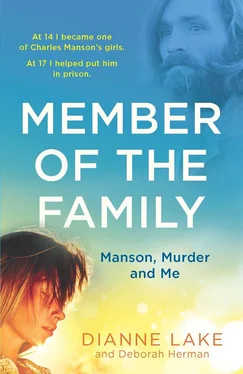At school, no one said anything about my family’s financial status. My mother made sure we were all clean and nicely dressed every day just like any other student. Instead they focused on what they said were my squinty eyes and Big Bertha butt. I think sometimes children have radar for locating the weakest animal in the herd. They zeroed in on me, the big-butt, squinty-eyed project kid whose father didn’t even care enough to stick around.
During that first year without my father, being second-in-command at home gave me the confidence that I couldn’t find in school. My mom confided in me and continued giving me extra responsibilities, so that I felt important in our home. Eventually that confidence spilled over to school as well. The 1964–1965 school year began with my blossoming into a great student, with a love for science in particular, working with Bunsen burners and making things out of pipettes. I even had a boyfriend. Because the projects were a diverse place with different kinds of people, I met a young black boy named Michael who was also very studious and lived nearby. We would take walks together after school and talk about everything under the sun. We would listen to Wee-Gee, WDGY on the AM dial, and make lists of our favorite songs.
Meanwhile, my mom was relaxed and focused on us. Even when she dated a few men, it was evident that my sister, brother, and I were her top priority. We had fun together. One night in June of 1965, we all piled into my mother’s bed to watch The Ed Sullivan Show . Herman’s Hermits were making their debut, and I was so excited I was squealing. Then my mother started to giggle. Then she started to laugh. Then she laughed so hard I thought she was going to pee her pants. She was laughing so much she could hardly breathe.
“Mom, why are you laughing?” I started laughing with her, and Kathy and Danny joined in. “Come on, what is so funny?”
“Don’t you see them?” she asked.
“What do you mean? That’s Herman’s Hermits. Aren’t they fab?”
“Fab? They’re hilarious,” she snorted. “Look at those mop tops!” It was so funny seeing my mother in hysterical abandon that I couldn’t take offense at what she was saying about my new favorite musical group.
Ultimately, though, all the independence I’d achieved started to change things with my mother. Every night my mother’s ritual would be to kiss us good night. She would go room to room. One night she skipped me.
“Mom, you forgot to kiss me good night,” I called to her at her apparent oversight.
“No, I didn’t,” she replied. I lay there for a few minutes contemplating her returning for our nightly ritual so I could go to bed.
“Mom, are you coming?” I shouted again.
“Dianne, you are too old to kiss good night. It is time for you to go to sleep on your own.”
I was dumbfounded. I couldn’t believe that my mother had decided I didn’t need my good-night kiss. This had been our routine since I could remember, and now because of some arbitrary passage of time of which I was completely unaware, this expected sign of love and affection would be withheld from me. At the time, I was deeply wounded, but I swore to myself that I wouldn’t show it. I was eleven years old, but I’d felt older than my age ever since my father had left home. Now, as the tears rolled down my cheeks, I decided that if this was what was expected of me, it was time to grow up. Only babies needed good-night kisses from their mothers.
Конец ознакомительного фрагмента.
Текст предоставлен ООО «ЛитРес».
Прочитайте эту книгу целиком, купив полную легальную версию на ЛитРес.
Безопасно оплатить книгу можно банковской картой Visa, MasterCard, Maestro, со счета мобильного телефона, с платежного терминала, в салоне МТС или Связной, через PayPal, WebMoney, Яндекс.Деньги, QIWI Кошелек, бонусными картами или другим удобным Вам способом.












